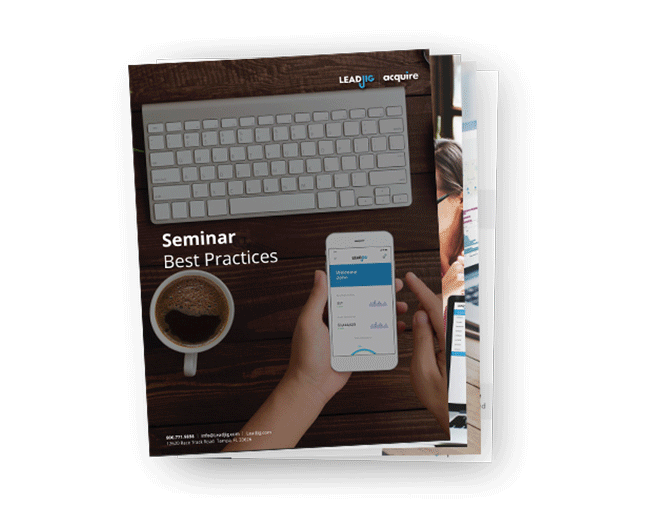What is Relationship Management?
Relationship management in professional environments is a relatively new concept.
Even today, many of the business leaders from an older generation don’t have a clear understanding of how relationship management works, undervaluing the impact that emotional intelligence and the ability to communicate have on success.
However, modern business owners and salespeople know that without the ability to build and nurture relationships with colleagues and clients, no business could survive.
So, in this article, let’s explore what relationship management is and what relationship management skills you need to focus on.
Even today, many of the business leaders from an older generation don’t have a clear understanding of how relationship management works, undervaluing the impact that emotional intelligence and the ability to communicate have on success.
However, modern business owners and salespeople know that without the ability to build and nurture relationships with colleagues and clients, no business could survive.
So, in this article, let’s explore what relationship management is and what relationship management skills you need to focus on.
Change Your Outlook on Emotions
The old-school business approach was based on the notion that emotions had no place in a productive business environment and were little more than a distraction.
However, decades of research into relationship management theories have not only put this mindset into question but have thoroughly disproved it.
In the end, embracing your emotions as a natural part of performing at your peak is one of the most critical relation management skills you can acquire.
Being able to express emotions, even if they are unpleasant, is a natural part of dealing with issues and stressful situations, and must be directed in a positive way instead of being suppressed.
Instead of requiring a complete lack of emotion, you should try to be compassionate and alert of what you and those around you are feeling, trying to emphasize and understand why others are reacting in the way that they are.
However, decades of research into relationship management theories have not only put this mindset into question but have thoroughly disproved it.
In the end, embracing your emotions as a natural part of performing at your peak is one of the most critical relation management skills you can acquire.
Being able to express emotions, even if they are unpleasant, is a natural part of dealing with issues and stressful situations, and must be directed in a positive way instead of being suppressed.
Instead of requiring a complete lack of emotion, you should try to be compassionate and alert of what you and those around you are feeling, trying to emphasize and understand why others are reacting in the way that they are.
Understand the Components of Relationship Management
According to the classic relationship management definition, it’s the process of managing relationships with your staff, coworkers, and clients.
However, many relation management skills go into the process, each of which should aid your ultimate goal of building stronger relationships and getting the most out of the people you work with.
Some of these skills can be difficult to quantify and measure – interpersonal communication skills, empathy, and the ability to understand people’s behaviors and emotions are just some of the aspects that go into relationship management.
Still, the good news is that even if you don’t consider these skills to be your strong suits, most of the skills that managing relationships require can be learned and mastered over time, both in the workplace and in your personal life.
The components of relationship management come down to how well you can communicate your ideas and direction, and how effectively you can get your employees, coworkers, and clients to respond to what you have to say.
However, many relation management skills go into the process, each of which should aid your ultimate goal of building stronger relationships and getting the most out of the people you work with.
Some of these skills can be difficult to quantify and measure – interpersonal communication skills, empathy, and the ability to understand people’s behaviors and emotions are just some of the aspects that go into relationship management.
Still, the good news is that even if you don’t consider these skills to be your strong suits, most of the skills that managing relationships require can be learned and mastered over time, both in the workplace and in your personal life.
The components of relationship management come down to how well you can communicate your ideas and direction, and how effectively you can get your employees, coworkers, and clients to respond to what you have to say.
Practice the Skills of Relationship Management
As mentioned earlier, practice makes perfect when it comes to learning how to manage relationships more effectively.
An easy place to start is to look at how you communicate on a daily basis. Try to watch yourself as you speak and look at whether the language that you’re using is easy to understand, professional, and to the point.
Another crucial skill of relationship management is being selfless when it comes to dealing with others. Always look for ways that you can make the lives of others easier, and people will reciprocate by doing their best as well.
You should also make it a point to show your appreciation for what others are doing. If you see someone doing a good job or putting in hard work, make sure you show your appreciation and thank them for their effort.
Finally, to build long-lasting and strong relationships with those around you, make an effort to get to know them, not only on a professional level but on a personal one as well.
An easy place to start is to look at how you communicate on a daily basis. Try to watch yourself as you speak and look at whether the language that you’re using is easy to understand, professional, and to the point.
Another crucial skill of relationship management is being selfless when it comes to dealing with others. Always look for ways that you can make the lives of others easier, and people will reciprocate by doing their best as well.
You should also make it a point to show your appreciation for what others are doing. If you see someone doing a good job or putting in hard work, make sure you show your appreciation and thank them for their effort.
Finally, to build long-lasting and strong relationships with those around you, make an effort to get to know them, not only on a professional level but on a personal one as well.
More Tips
Now that we’ve gone through some of the key skills to practice, we can define relationship management further by exploring some more tips you could utilize to improve your skills.
- Develop the habit of valuing the time of others and always be early or precisely on time, especially when meeting others. This will show professionalism that will rub off on those that you work with and help you maintain a respectful and productive environment.
- When talking to people, whether it be a client or a subordinate, always give them your full attention and be very responsive during your conversation. That will not only make your interactions more productive but will also provide you with more insights.
- Greet people that you meet with a smile and with a positive attitude. Life can be stressful enough as it is, so even the simple step of trying to be positive with others can make interactions more pleasant and form a positive environment.
Working With LeadJig
Relationship management theory is an academic field that is based on decades of studies and research into business psychology.
At LeadJig, we use that knowledge to develop financial services marketing tools that can help financial advisors create deeper relationships with their customers and book more attendees at their presentations. If you want to learn more, please request a demo to get started!
At LeadJig, we use that knowledge to develop financial services marketing tools that can help financial advisors create deeper relationships with their customers and book more attendees at their presentations. If you want to learn more, please request a demo to get started!





